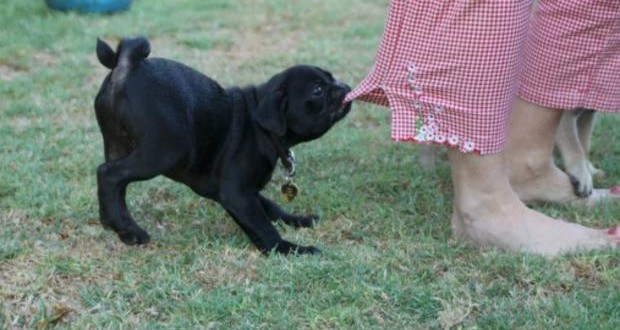Call it the green-eyed monster. A new study being done at UC San Diego suggests that jealous isn’t just a human emotion – it extends to our four-legged friends as well.
New research is confirming what many pet owners already suspect — dogs can get downright possessive when it comes to the love of their master.
Video : Silly dog is jealous of baby!
The University of California study used an adapted test for six-month-old babies to monitor the reaction of 36 dogs in their own homes when their owners ignored them in favour of the stuffed dog, or a bucket with a Halloween design. In a third scenario, owners were asked to read aloud a pop-up book that played tunes.
The dogs were filmed and the video rated for a variety of aggressive, disruptive and attention-seeking behaviour.
The study found the dogs were around twice as likely to push or touch their owner when he or she was petting and talking sweetly to the false dog, as when the owner was displaying the same behaviour towards the bucket. Even fewer pushed or touched their owner when the book was being read aloud.
Just under a third of the dogs also tried to get between their owner and the stuffed animal and a quarter snapped at the “other dog,” with only one doing so at the bucket and book.
Researchers, psychology professor Christine Harris, from the University of California San Diego, and former honours student Caroline Provoust, said the aggression displayed by the dogs suggested they believed the false dog was real.
They said the research supported the view that there may be a basic form of jealousy which evolved as a protection from interlopers into social settings.
Prof Harris said the majority of research so far has been on jealousy between human beings and showed that a great deal of the emotion existed in relationships between siblings, friends and even close colleagues.
The first signs of human jealousy can be seen in babies and young children, she said, suggesting that the emotion may have evolved from siblings competing for family resources and that it is “hard wired” into our consciousness.
“Our study suggests not only that dogs do engage in what appear to be jealous behaviours but also that they were seeking to break up the connection between the owner and a seeming rival,” Prof Harris said.
Both researchers said the study would help further understanding of jealousy.
“Many people have assumed that jealousy is a social construction of human beings — or that it’s an emotion specifically tied to sexual and romantic relationships,” Prof Harris said.
“Our results challenge these ideas, showing that animals display strong distress whenever a rival usurps a loved one’s affection.”
Agencies/Canadajournal
 Canada Journal – News of the World Articles and videos to bring you the biggest Canadian news stories from across the country every day
Canada Journal – News of the World Articles and videos to bring you the biggest Canadian news stories from across the country every day



